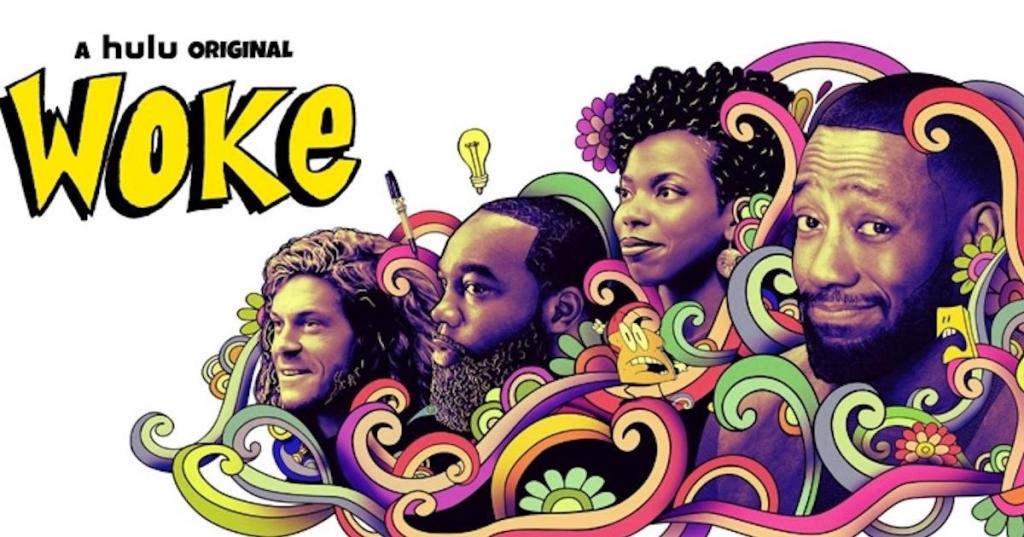After a two-year hiatus, Woke is back for season 2 on Hulu. The comedy series stars Lamorne Morris, T. Murph, Blake Anderson, Sasheer Zamata, and JB Smoove, with Morris as the main character – Cartoonist Keef Knight. This season explores Knight’s transition to becoming a public activist on the rise. Following him being thrust into the spotlight as a result of being racially profiled by police, he now has to grapple with the difficulty of doing important work, while merging it into the business world. As he tries to bring about real change, he becomes part of the latest commodity of social activism and the dollars it can bring.
The series was developed by Marshall Todd and Keith Knight. Ahead of the Season 2 premiere, PopCulture.com spoke exclusively with Murph and Zamata about the relevance of this season’s storyline. Zamata stars as Ayana, a reporter for the local paper who calls Knight out. Murph is Clovis, Knight’s devoted roommate and best friend.
Videos by PopCulture.com
So, what makes you guys excited about season two?
TM: People get to see my abs. So I’m putting it out there on the table.
SZ: I’m also excited for that.
TM: The show is good, too, but me, [I’m] in shape.
SZ: This is the ultimate gym selfie – you get a whole show to talk about your abs.
You spent quarantine getting that body right, so I’m excited for the world to see this, too, for you. I think that it’s interesting because this season we really get to dive into how difficult it can be to balance being woke and having that pressure on you. How timely do you guys think this conversation is explored in this season, especially how it relates to social media?
SZ: I think it’s very timely because we are in a moment where activism’s very important. It’s always important, but I think people are trying to figure out the best ways to do it, and we talk about it in the pilot, [and in] episode two, where it’s, like…you the black squares that people were using on Instagram, or, there’s a lot of presentational activism that people fall into. And I think this show kind of dissects that, and is like, “Well, you know, what’s the best way to actually fight for the cause?” And there’s pros and cons to each journey. There’s money over here, but then there’s also being on the ground, and doing the real work over here. And we try to blend it as much as we can, but sometimes, realistically, you can’t.
TM: I feel like it’s getting to a point where a lot of people are losing themselves because that’s what Sasheer said, some people want to be on the ground and do the work, but other people want the acknowledgment. And they’re not receiving the acknowledgment and now they’re no longer doing the work because they don’t feel like people see them. They need to be seen, they need the likes, they need the shares. So, it’s like are you really doing it because it’s something that you care about, or are you doing it for the social media thing? And that’s kind of where we are, as a people. A lot of people, they want the fame.
And what lessons are you hoping to impart this season?
SZ: Well, I just want them to have fun. Like, this is a comedy. We try to find the humor in these serious issues. We definitely don’t make light of these issues, but that’s real life. Serious things happen in your life, but you also keep living, and also keep laughing, and enjoying the people around you. So, I hope people enjoy the show, because it’s fun, but also get some insight on some issues at the same time.









